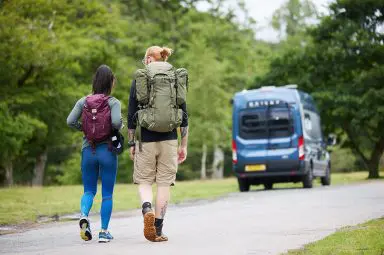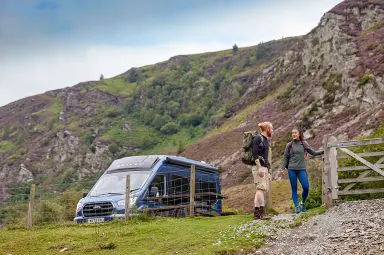Mastering Motorhome Off-Grid Living: Top Tips for Wild Camping Success
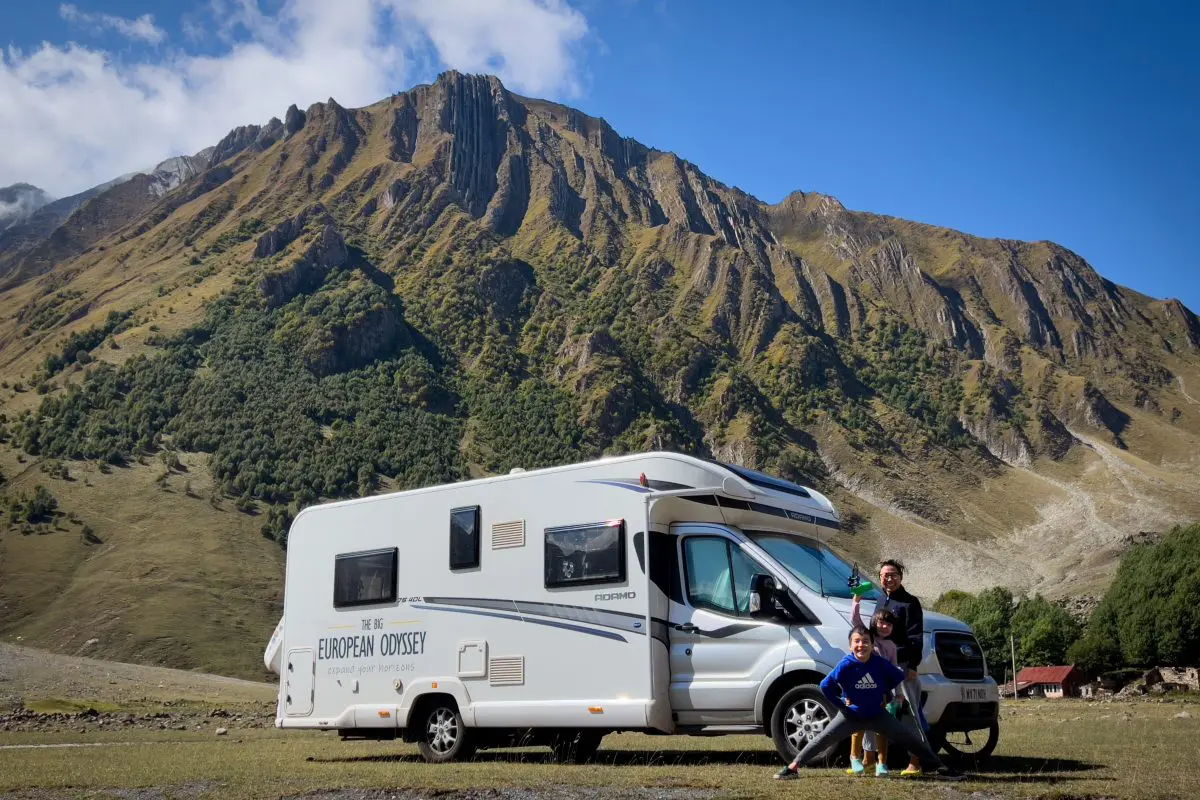
Like Marmite, when it comes to wild camping, it seems you either love it or hate it. However, until you’ve tried it, there’s no way to be certain, even if you think that it’s not for you. The further east we’ve ventured on our travels, the more often we have wild camped, at first out of necessity due to fewer campsites, and then out of choice given how much we enjoyed it. With every night off-grid, our love for it grows.
That’s not to say we won’t be back on campsites as we return towards Europe, just that we will mix things up and continue to enjoy the best of both worlds. As with many things in life, staying off-grid is all about planning and preparation, especially if you’re new to it. That’s why we are here to share our top tips for those looking to give it a go for the first time.
Before we delve into that, it is worth mentioning that modern motorhomes, such as our Adamo 75-4DL, are perfectly equipped for spending periods off-grid. So, have faith in your vehicle and keep the words of American novelist Edward Abbey in mind, for he said that ‘wilderness is not a luxury but a necessity of the human spirit.’
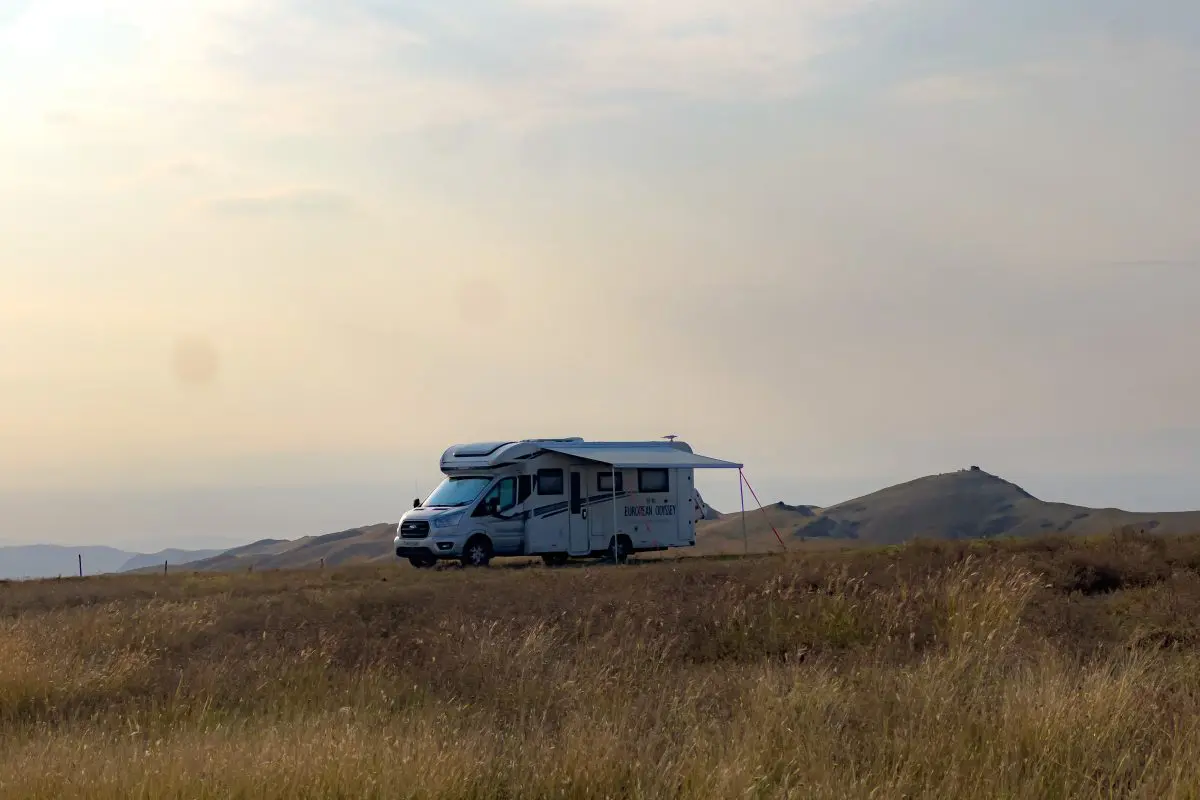
- Camp near a water source: Being by a freshwater source is a great way to extend the time you can stay off-grid before needing to find a campsite. You can collect water from places like running rivers and freshwater lakes for boiling for doing things such as dishes, or even to use in a portable outdoor shower. This way, you can preserve the water in your tank for drinking and cooking.
- Take a spare toilet cassette: Perhaps the biggest limiting factor for how long you can stay off-grid without the need for a campsite is how quickly your toilet cassette fills up. There are two options here; carry a spare toilet cassette in the boot of your motorhome, something we’ve seen a few people do, or secondly be comfortable with going for a wild pee. If you opt for the latter, don’t pee near open water and stay well away from your camp spot.
- Use power banks and plug-in lights: It’s surprising how quickly you can use up your leisure battery when you have lots of different applications and devices drawing energy, especially in the evening. We try to limit the number of lights we have on, opting to use the small auxiliary lights in the motorhome on the leisure battery, complemented by having lights we can run off power banks or rechargeable batteries.
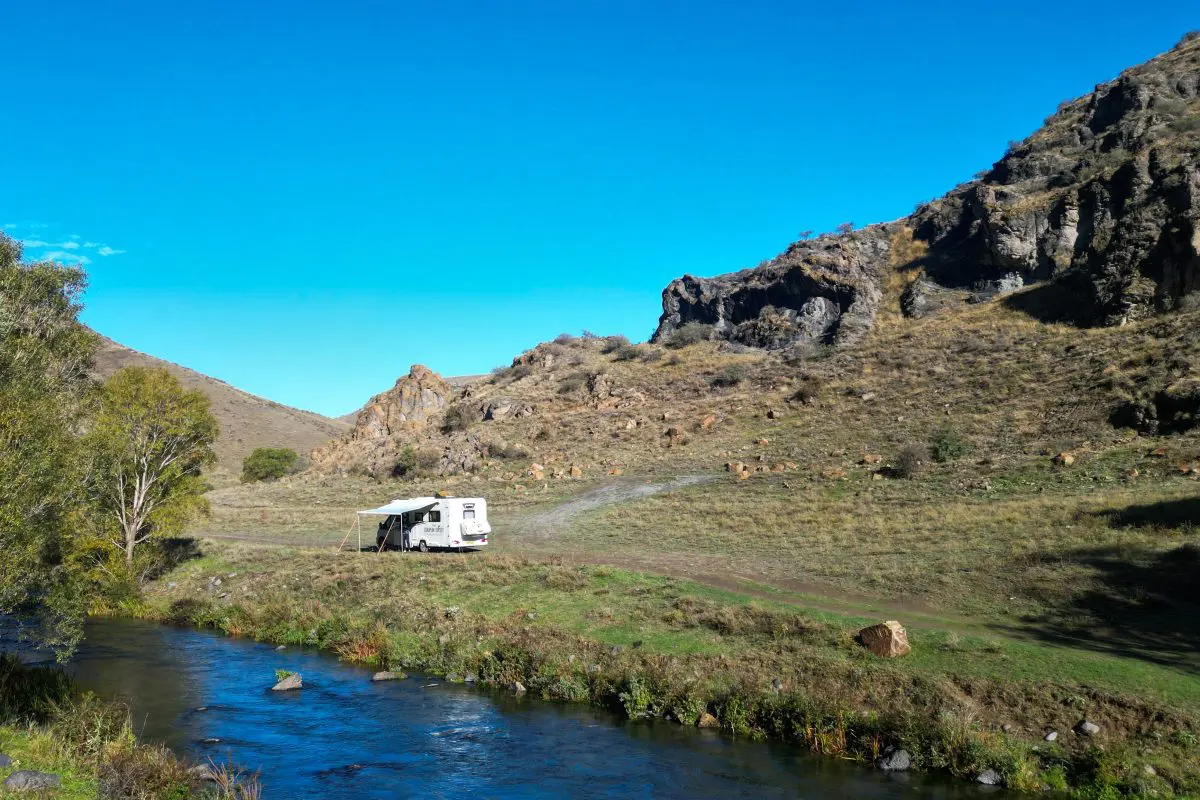
- Charge electrical appliances during the day: When wild camping, solar energy is one of your best friends, so ensure you make maximum use of it by recharging any devices, such as phones and tablets, during the day. We always recharge items in order of importance, with our power banks only ever needing to be recharged every few days, given they use very little power to keep the lights on in the evening.
- Use a refillable gas system: Our motorhome is fitted with a Gaslow International refillable gas system, meaning we have two refillable 11kg bottles, giving us over twice the amount of a standard replacement bottle. If you know you’re going to be off-grid, make sure you start with them full; this way, no matter what the weather (heating will use more gas), you can confidently run your fridge, heating, water, and cooking without worrying about running out. To give a sense of how long two 11kg bottles will last, we spent two weeks off-grid in Armenia, during which time we had the heating on most days for a few hours, as well as cooking and the fridge running, after which we had about 15% left in the tanks.
- Ensure everything is topped up before setting off: If you know you’re going to be going off-grid, spend the last night before you do so on a site where you can fully charge your leisure battery, devices, power banks, and any other battery-powered appliances you might have. Also, ensure your fresh water tank is full and that your toilet cassette and grey water tanks are empty. It’s also a good idea to do a food shop on the way to your wild camping spot so that you have enough provisions to stay off-grid for as long as possible.
- Stay somewhere you feel safe and comfortable: The joy of wild camping is that you can be at one with nature, staying in locations surrounded by natural beauty and away from other people. However, if when you arrive at your proposed wild camping spot you don’t feel comfortable with it, move on. The aim is to enjoy yourself, not worry about safety or other concerns.
- Leave no trace: While this should go without saying, it’s surprising the number of people who forget to respect the places in which they stay off-grid. Ensure that you take all of your rubbish with you and never empty your toilet cassette anywhere other than a designated toilet or discharge area.
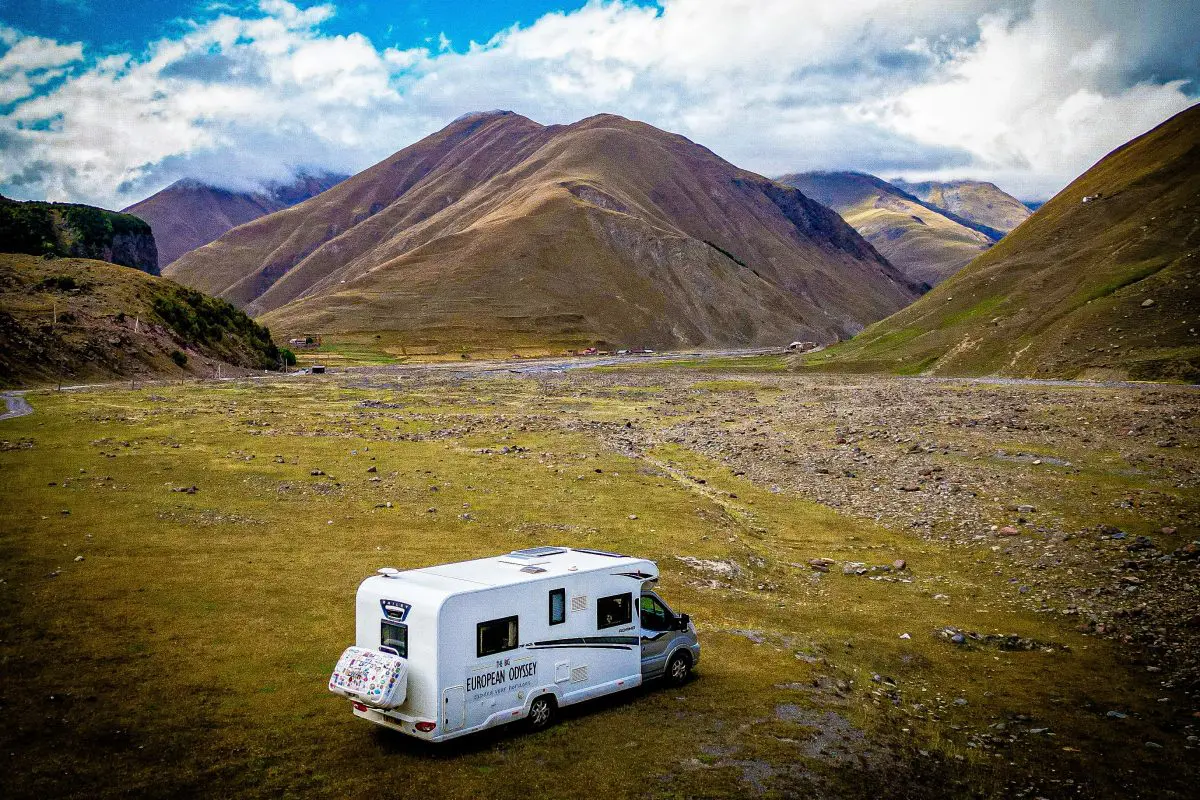
To stay up-to-date with our travels in real-time, as well as ask us any questions about our life on the road in our Adamo 75-4DL or about any of the places we have visited, please feel free to contact us on social media. Our handles are @MarcusLeachGlobal and @Our.Roaming.Odyssey, and on Twitter at @MarcusGLeach.
Previous
The Big European Odyssey: Exploring Asia in a Motorhome
Next
News & Events
Latest news & events
See all news & eventsWest Country Motorhomes Open Weekend
BRISTOL ROAD, BRENT KNOLL, HIGHBRIDGE, SOMERSET
Swindon, Oxford and Reading Caravan and Motorhome Centre Easter Sales Event
GREATFIELD, ROYAL WOOTTON BASSETT, WILTSHIRE
Grantham's Midlands Caravan & Motorhome Season Ready Show
SPITTLEGATE LEVEL
GRANTHAM
